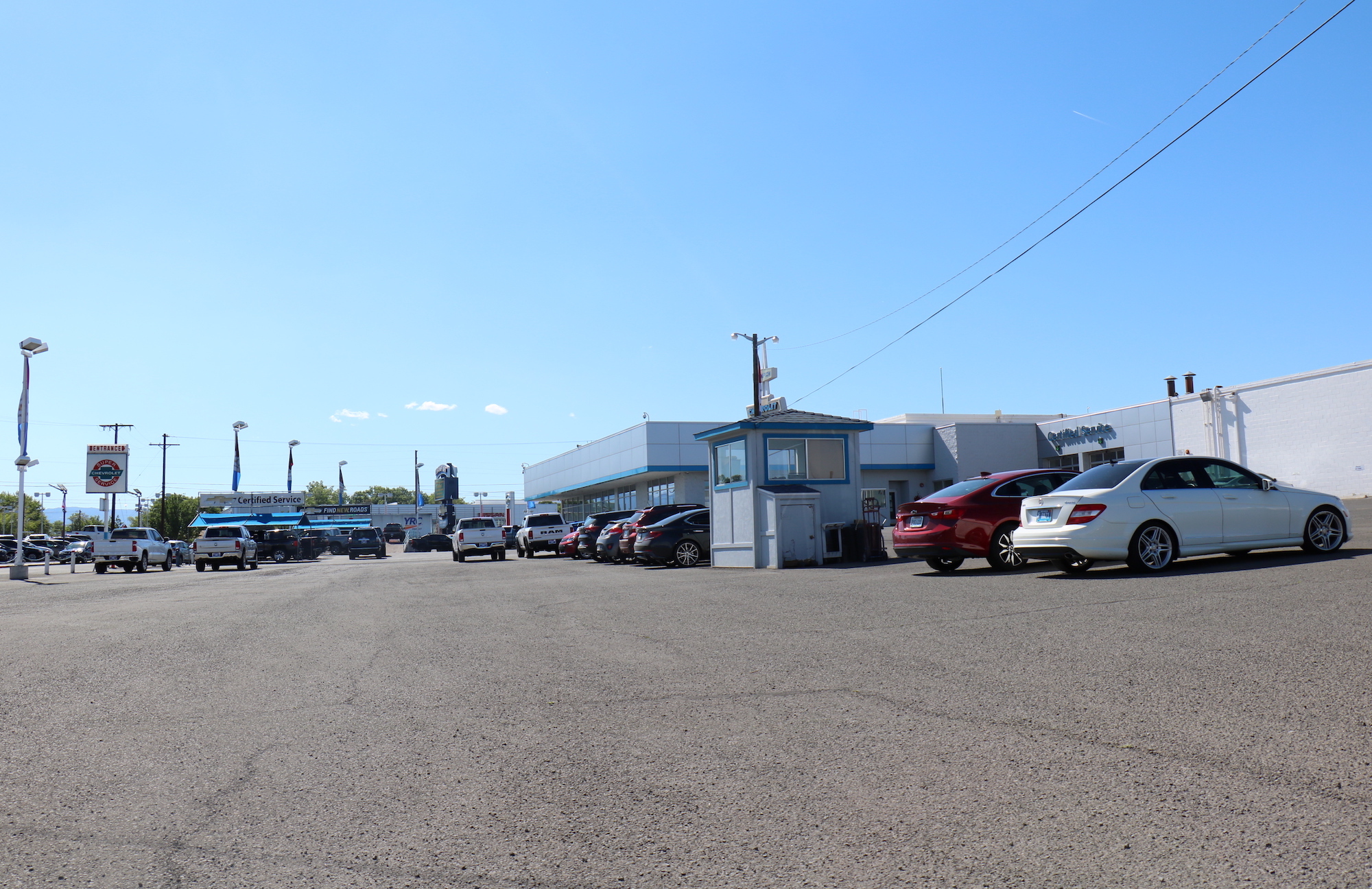Kevin Lemus, fleet associate at Champion Chevrolet, shows a vehicle to a customer on Tuesday, May 25, at the dealership’s lot at 800 Kietzke Lane in Reno.
Photo: Kaleb M. Roedel / NNBW
 Champion Chevrolet’s new car lot at 800 Kietzke Lane in Reno is mostly empty because the dealer’s on-ground inventory is down about 90% due to the chip shortage, said owner Jack Stanko. Photo: Kaleb M. Roedel / NNBW
Champion Chevrolet’s new car lot at 800 Kietzke Lane in Reno is mostly empty because the dealer’s on-ground inventory is down about 90% due to the chip shortage, said owner Jack Stanko. Photo: Kaleb M. Roedel / NNBW